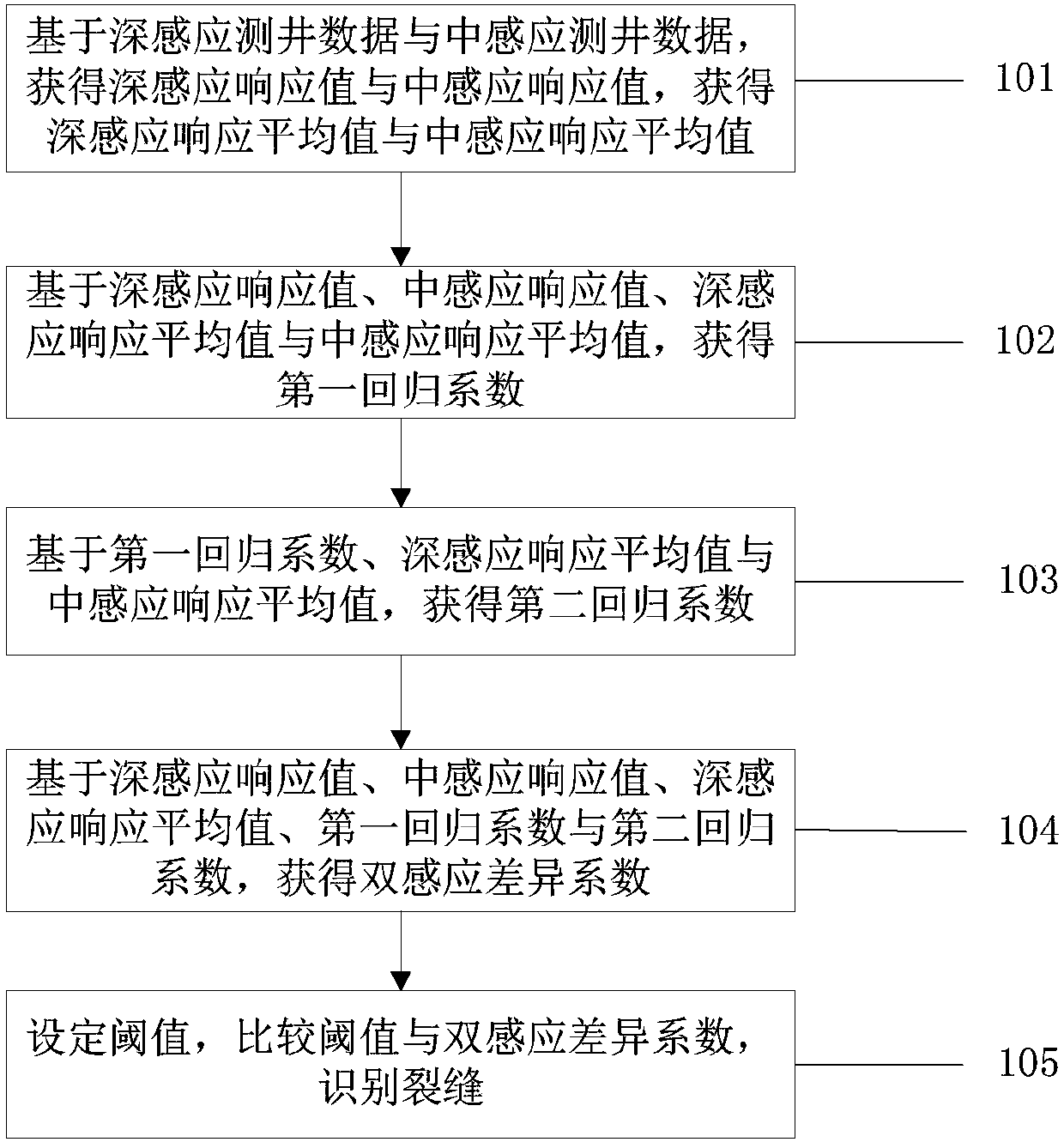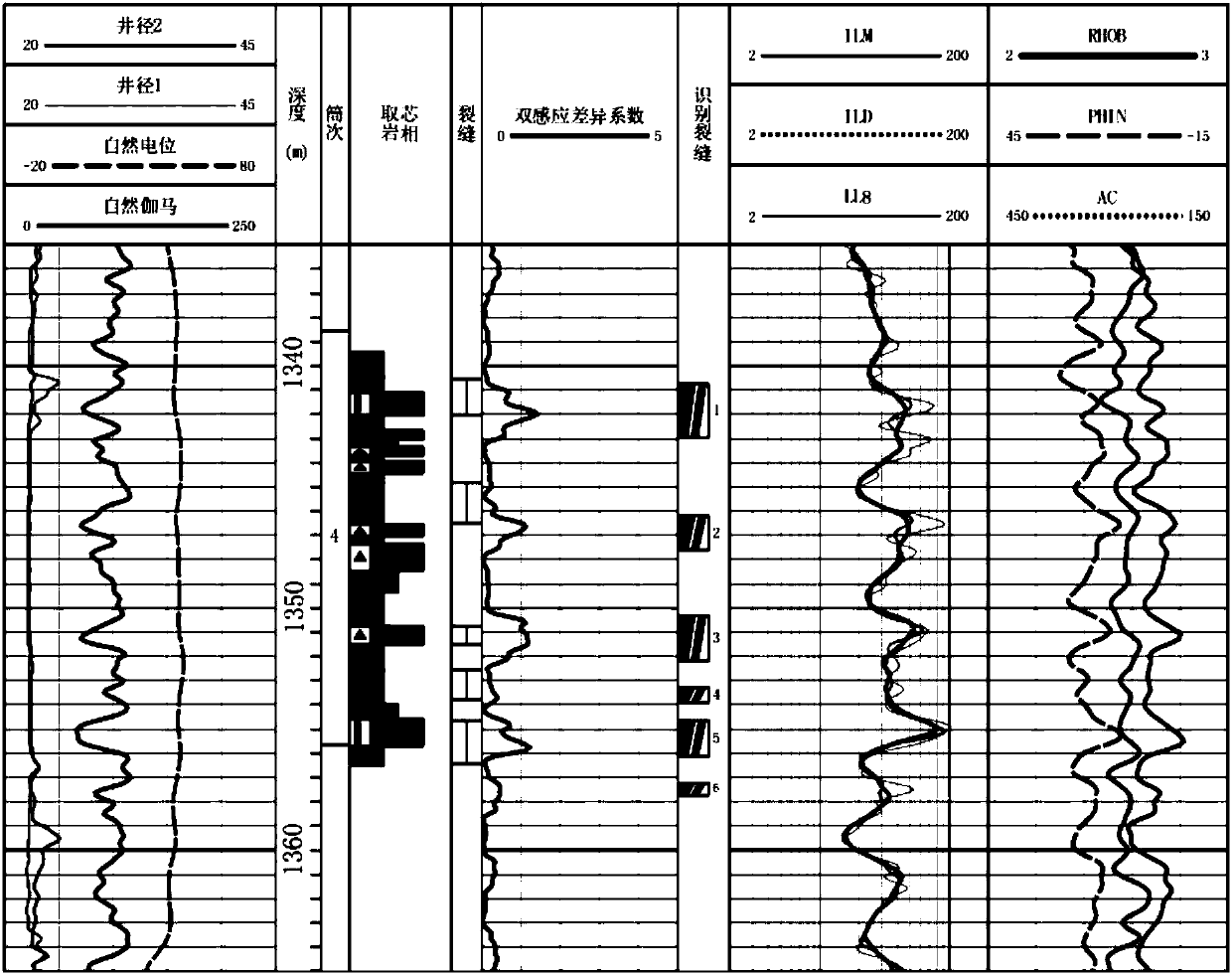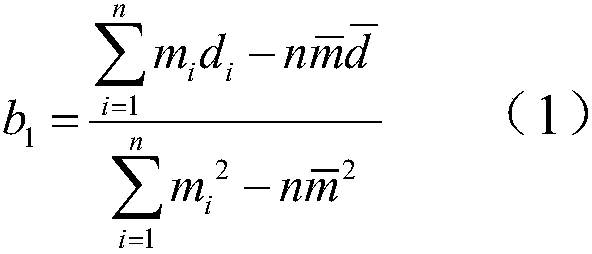Crack identification method and system of tight sandstone formation
A crack identification and tight sandstone technology, applied in radio wave measurement systems, earthwork drilling, geophysical surveys, etc., can solve problems such as large differences in measurement principles, low crack identification accuracy, weak crack response, etc., to achieve easy computer programming. Computational, good theoretical foundation, adaptable effects
- Summary
- Abstract
- Description
- Claims
- Application Information
AI Technical Summary
Problems solved by technology
Method used
Image
Examples
Embodiment Construction
[0034] The present invention will be described in more detail below with reference to the accompanying drawings. Although preferred embodiments of the invention are shown in the drawings, it should be understood that the invention may be embodied in various forms and should not be limited to the embodiments set forth herein. Rather, these embodiments are provided so that this disclosure will be thorough and complete, and will fully convey the scope of the invention to those skilled in the art.
[0035] figure 1 A flowchart showing the steps of the method for identifying fractures in tight sandstone formations according to the present invention.
[0036]In this embodiment, the method for identifying fractures in tight sandstone formations according to the present invention may include: step 101, based on the deep induction logging data and the medium induction logging data, respectively obtain the deep induction response value and the medium induction response value, and then ...
PUM
 Login to View More
Login to View More Abstract
Description
Claims
Application Information
 Login to View More
Login to View More - R&D
- Intellectual Property
- Life Sciences
- Materials
- Tech Scout
- Unparalleled Data Quality
- Higher Quality Content
- 60% Fewer Hallucinations
Browse by: Latest US Patents, China's latest patents, Technical Efficacy Thesaurus, Application Domain, Technology Topic, Popular Technical Reports.
© 2025 PatSnap. All rights reserved.Legal|Privacy policy|Modern Slavery Act Transparency Statement|Sitemap|About US| Contact US: help@patsnap.com



